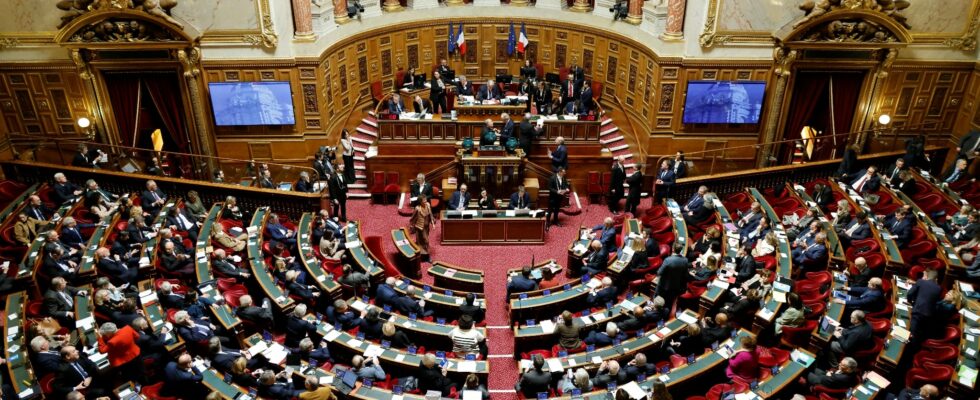The SAP 2025 budget, which had dropped the government of Michel Barnier, was definitively adopted by the Parliament on Monday, February 17, after a final vote of the Senate. Here are the main points of the text which was approved by the upper chamber by 225 votes against 104, in the same terms as in the National Assembly, where Prime Minister François Bayrou resisted several motions of censorship.
Raising health expenses
The social security financing bill (PLFSS) increases health insurance expenditure – the national objective of health insurance expenditure (ONDAM) – by 3.4% in 2025, to bring them to 265, 9 billion euros. This is more than the increase that ex-Prime Minister Michel Barnier had planned (+2.8%), in particular because the Bayrou government has extended the hospital envelope by one billion euros. The Bayrou government has also increased the EHPAD emergency fund to 300 million euros, compared to 100 million euros initially planned.
In order not to exceed this objective of +3.4%, health insurance will have to find 4.3 billion euros in savings.
The employer contributions noted
The ex-government Barnier wanted to reduce the exemptions from employer contributions by 4 billion euros that companies benefit from, to involve them in the account of accounts. The Bayrou government finally decided that this reduction would only be 1.6 billion euros.
Mutuals involved
The Bayrou government has promised to “recover” a billion euros from complementary health in a future text. The executive believes that they have already anticipated measures in their 2025 prices which ultimately did not take place, which the complementary deny.
Behavioral taxes
To allow the security to garner new recipes, the text increases the “soda tax” (intended to limit the quantity of sugars) and the taxation of games and lottery online. The increases on online games and lotteries will intervene on July 1, and increases on sugar on January 1, 2026. The expected gain is more than 300 million euros.
On the other hand, the government has given up accelerating the increase in tobacco taxation that the Senate had proposed.
The cap in daily life revised downwards
The Government plans to lower the ceiling of daily allowances paid by health insurance in the event of a work stoppage. The compensation (50% of the daily salary) will be capped at 1.4 minimum wage, not 1.8 as today, for an estimated gain at 400 million euros.
Control of radiology and taxis expenses approved
A very debated article aims to force representatives of radiologists and taxis approved for health transport to conclude “expenditure control” agreements with health insurance. These agreements must set financial trajectory and territorial distribution objectives. In the absence of an agreement to make 300 million euros in savings “over the years 2025 to 2027”, health insurance may impose pricing.
Another article changes taxis agreement rules. Health insurance may ultimately refuse certain requests for new agreement, in areas where taxis density carrying out patients is sufficient.
Relevance of prescriptions
To prescribe certain acts, particularly expensive health products, or health transport vouchers, the list of which will be defined by decree after “consultation” of professionals and associations of patients, the prescribing doctor must complete a form allowing health insurance Check the relevance. Otherwise it will not be reimbursed.
Fight against fraud
An article aims to facilitate the exchange of information between health insurance and complementary health insurance, with the aim of fighting more effectively against fraud.
But according to complementary health insurance, the drafting ultimately chosen by the government reduces the effectiveness of the system, by maintaining the impossibility of direct exchange of information on fraudsters between health insurance and additional insurers. “We each do the same work on our side, without being able to coordinate or discuss the faults identified. It is absurd,” said Thursday Thomas Saunier, president of the complementary health Malakoff Humanis.
Dematerialized vital card
The text concretizes, by law, the announced deployment of the dematerialized vital card, coupled with authentication with the dematerialized national identity card (CNI), via a dedicated application. This “smartphone card” will be optional.
Rabbit
The text opens the way to penalties for patients who do not honor their appointments with a caregiver. The concrete modalities are referred to a future decree.
22.1 billion deficit
The initial PLFSS provided for a deficit of 16 billion euros. But with the delay taken since censorship, the abandonment of certain measures (lower revaluation of pensions, decrease in the rate of reimbursement of drugs and consultations …) and the degradation of macroeconomic forecasts, the government now provides for a deficit in Social security of 22.1 billion euros at the end of 2025.
